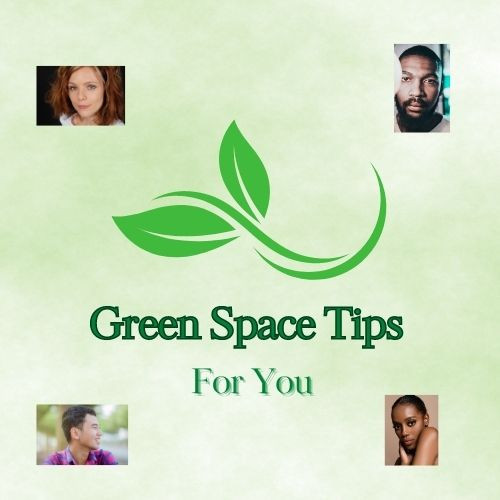Dangerous Household Chemicals – What to Avoid and Why
One of the first steps to living a toxin-free lifestyle is to limit the chemicals you are exposed to in your home. Many dangerous household chemicals are used every day by home-owners who don’t realize their harm. Here’s what to avoid and why.
Bleach

A very strong corrosive substance. Bleach is often used to disinfect surfaces and to treat laundry. It is often a secondary additive in cleaning products you may purchase (for example mildew remover).
There are alternate cleaners you can use in the place of bleach that are often less harsh and natural based. I won’t go into detail here, but you should look for alternatives that are safer for you and your family. There are disinfectants that are both antibacterial and antimicrobial that you can make yourself or purchase if you know where to look.
Ammonia
Ammonia is a strong smelling alkaline substance. The fumes can irritate your respiratory tract and anyone with asthma will suffer if they breathe it. Contact with the skin can cause damage and skin irritation.
Milder cleaners like vinegar can be used in most applications where you use ammonia. Allowing vinegar to set for a while on stains you want to remove are often effective and it is a far less harmful chemical. Vinegar can be used in “cleaner recipes” throughout the home that often prove to be useful.
Here’s a little transparency: Our website contains affiliate links. This means if you click and make a purchase, we may receive a small commission. Don’t worry, there’s no extra cost to you. It’s a simple way you can support our mission to bring you quality content.”
All Purpose Cleaners
These may contain a number of volatile organic compounds in their list of ingredients – you will need to read the label and analyze what’s in the cleaner you are using. One ingredient, triclosan, is an endocrine-disrupting chemical. This means that it can interfere with your hormone system functions.
One word of caution: You should try to use naturally based cleaners where you can to avoid the side effects of these man made chemicals. If you do have to use a cleaner, follow the instructions on the label. Protect yourself using gloves and other precautions when handling. Remember it’s your health you are protecting.
Chlorinated Cleaners
These can be powders, sprays or liquids. Chlorine can react with other substances and if chlorine gas is released, it is corrosive to the lungs if breathed. Look carefully at the label when purchasing these products.
For chlorine type powder products (often used in tubs, showers and the like), you can often use a homemade scouring powder that is safer and uses natural ingredients to do the job. Getting away from chlorine containing chemicals that are harmful is a must in detoxifying your home.
Seek out natural alternatives to the sprays and liquid cleaners you use. Many essential oils can be used in cleaner recipes that leave a clean, fresh smell. Seek out liquid cleaners that do not use chlorine and that are safe for you and your family.
Drain Cleaners
These are often caustic designed to remove clogs in drains. Hair, grease build up and other substances that clog up drains are the culprit that prompts the use of these chemicals.
An alternative to this situation is to use vinegar. Pour baking soda down a drain then follow with vinegar. Allow it to sit for an hour and follow by running hot water through the drain. For most common clogs, this will work.
Another alternative is to use the baking soda with a cup of hydrogen peroxide. Again follow with the hot water after an hour to flush the drain. If these methods are not successful in getting rid of the clog, call a plumber to fix the problem.
Harmful Shampoo Ingredients
Shampoos are often used on a daily basis. As such, you should look at the ingredients in your shampoos to be sure what you are using is safe to use day in and day out without hazardous effects. What are some key ingredients you should look out for?
- Look out for sulfate containing shampoos. These are surfactants used to make the “soapy” part of the shampoo work better. They are not harmful in and of themselves, but may strip natural oils from your hair and cause a frizz effect from the drying out of your hair. Sulfate-free shampoos are available if you prefer to use them.
- Parabens are a type of preservatives found in shampoo. Some scientists think these might be linked to cancers, particularly breast cancer. Try to avoid this if possible.
- Formaldehyde can be formed from the breakdown of preservatives in your shampoo. If this concerns you, see if your shampoo contains quarterrnium-15. Formaldehyde is a known carcinogen.
I try to use herbal based shampoos as an alternative when washing my hair. There are some good ones on the market that do a fantastic job at cleaning your hair and are safe to use every day.
The same holds true for your conditioner. Many people use leave in conditioners and you should look at the label to be sure it is safe to use on a daily basis.
The health of your scalp is the key thing to look at when using shampoo/conditioner combinations. Everyone’s skin is different and you will have to experiment to see what’s best for you. Make sure what you use does not dry out your scalp and make sure your scalp is properly moisturized after each shampoo.
Harmful Deodorant Ingredients
Body odor forms after we sweat. Sweating is the mechanism our bodies use to reduce our internal temperature. It also removes toxins and releases excess salt.
Deodorants are used to reduce the odor formed after we sweat. However, there are a few precautions to look out for in your deodorant.
Some contain aluminum salts which block the action of sweating from the body’s pores. By reducing your sweat, these block the function of getting rid of body toxins as well as the excess salt through sweat. Avoid deodorants which contain aluminum as an ingredient.
Some contain parabens and triclosan. As I discussed earlier, these often interfere with body hormones and should be avoided.
Many deodorants contain fragrances that could be cancer causing. Read the label and be informed as these substances are often used on a daily basis.
Colognes and perfumes fall into this category. Do your diligence and check out the label. Safety is the key word here. Feel confident about the personal products you apply to your body.
Pesticides

This is a topic that covers a myriad of chemicals used in the home to kill pests. If you have a home garden, it will apply there as well. Toxic substances of this sort confront us regularly.
If you have pets, check out any chemical used on them first. Chances are cleaners, flea and worm treatments and any type of spray should be researched. Many of these are not only toxic to the pet, but you and your family as well. Read the label and try to use totally safe products for your pet.
For inside the home, try to use natural solutions for pest problems. Treat the inside of your home as a hazardous-free zone. The fewer toxins you and your family are exposed to, the better.
This is true for outside your home as well. There are many natural alternatives to pest problems for your lawn and for your garden.
Dangerous chemicals present a danger to you and your family. Practice avoiding harmful remedies when you can and reduce your exposure to these substances. Live a green, natural lifestyle and protect your health.






Thank you for writing about the importance of limiting the chemicals we use in our homes to avoid toxins that may cause harm to our health. Your article provides valuable insights into the dangerous household chemicals that we should avoid and suggests natural alternatives to these chemicals.
It is crucial to recognize that exposure to hazardous chemicals in our homes can cause severe health problems, and being aware of safer and healthier alternatives can make a significant difference. Your suggestions to use vinegar and baking soda in place of harsh chemicals for cleaning and unclogging drains and to use herbal-based shampoos are practical and helpful.
I love this article Elridge discussing Dangerous Household Chemicals – What to Avoid and Why. It is a well-written resource for anyone trying to figure out which chemical are okay to keep in the house and any special conditions they should be stored under.
The corrosive nature of bleach would seem to indicate that an alternative would be a better option but I wonder about the effectiveness of the alternatives compared to bleach. Will the alternative work just as well?
I quit keeping chlorinated cleaners in the house several decades ago as information about their danger being mixed with other cleaner began to be commonly acknowledged.
Yes there are natural alternatives to bleach. The application depends on just what job you are using them for. I have a disinfectant I use that is thyme oil based to disinfect surfaces – this is good as a laundry alternative as well. The only use I see that is hard to replace may be the elimination of mold (I am looking at outside use mainly) which bleach does a good job. As always, due to its corrosive nature, use protective gear and try to limit your exposure as much as you can.
Oh my goodness!!! You have no idea how timely this post is for me and my family. My daughter has been telling us to avoid most of the items you have mentioned in this article. She has a low immune system so it is essential that she avoid things with triclosan that you also mentioned. I cannot wait to share this post with her. She also said as you do here that a lot of them are carcinogens. You mentioned avoiding deodorants with aluminum. We have not found anything without aluminum that keeps our underarms from smelling. Do you have a suggestion for this? We probably need industrial-strength deodorant. lol!!!
There are herbal deodorants that do not contain aluminum. The emphasis is not on preventing sweat, rather eliminating bacteria that cause odor. I make a point of not endorsing one product over another on the site but if you’re interested, email me at elridge@greenspacetips.com and I’ll let you know what I started using. Thanks for your comment.
If you want to live a healthy life away from toxic substances, it is better to know the substances that are harmful to your health. Interestingly, most of these substances are cleaning agents and many people work with them on a daily basis like drain cleaners, all purpose cleaners and bleach. These substances react with other substances and have harmful effects on health. Be sure to read this article and be careful when buying detergents.